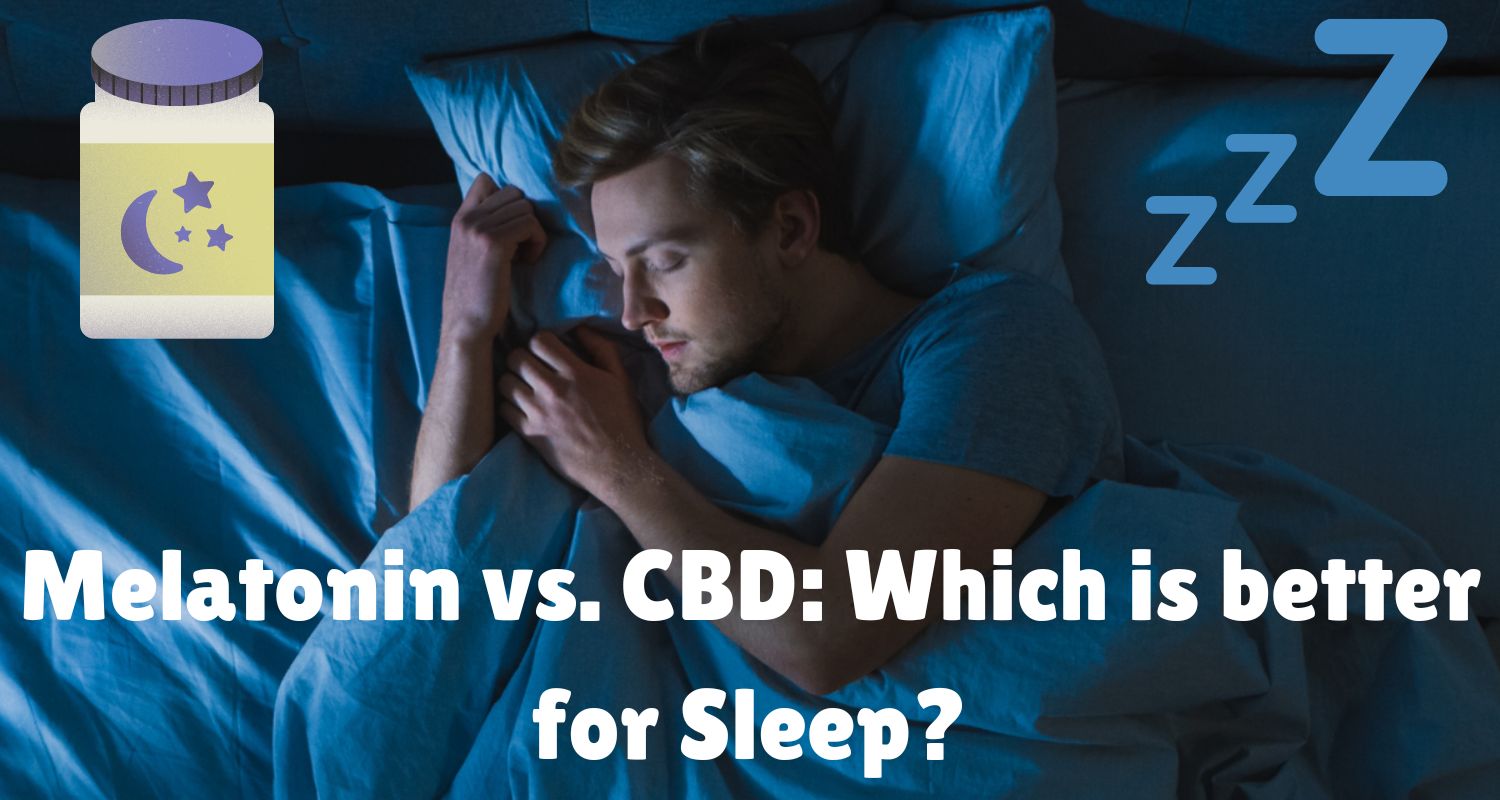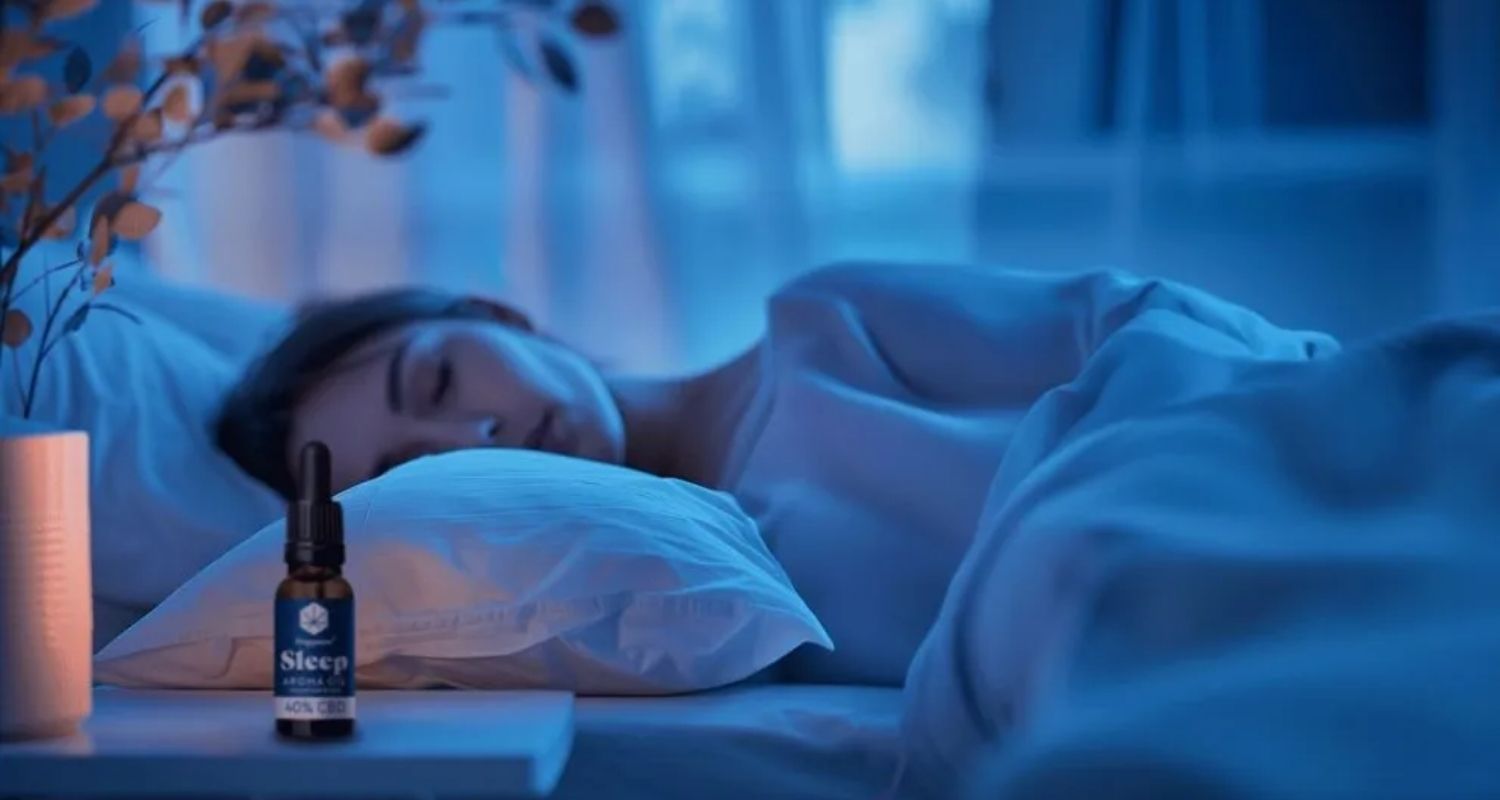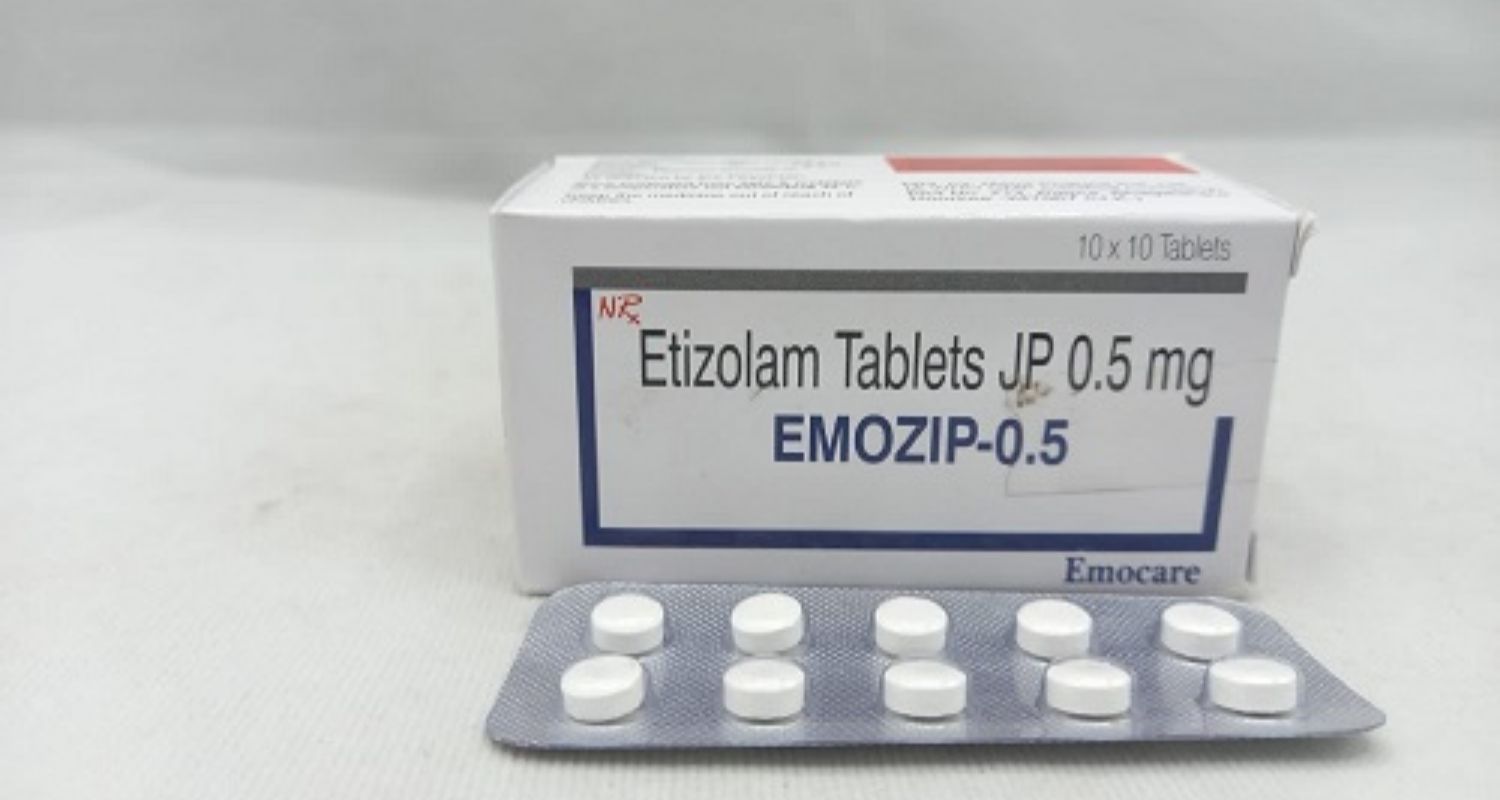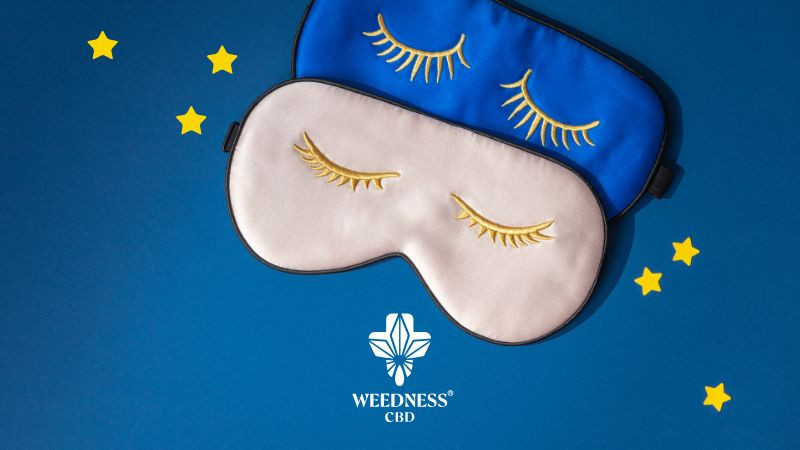Melatonin vs. CBD: Which is better for sleep?

Melatonin and CBD have become popular natural remedies against sleeping disorders, and debates regarding melatonin vs. CBD for Sleep are growing daily. Many people wonder: what is better for sleep, melatonin or CBD? Both substances present unique benefits and may give ground for better enhancement of sleep quality, although they work differently within the organism.
Melatonin is a hormone that regulates the sleep-wake cycle and is a naturally occurring hormone that regulates darkness. CBD, on the other hand, is a compound that comes from the cannabis plant. It is related to coping with specific conditions, such as anxiety or pain, that interfere with sleep. Understanding these two aspects helps in making a better choice for sleep problems.
If you want to know which melatonin or CBD is the best for you, read more to understand the benefits and how these products help you improve sleep.
Is Melatonin or CBD Better for Sleeping?
Melatonin vs. CBD for Sleep depends on an individual's situation. Melatonin is most often prescribed by physicians for people with diagnosed sleep disorders—when there has been a disruption in the circadian rhythm, such as messages from being on a long-distance flight or working night shifts. It helps the body establish signals that it is time to sleep so one can fall asleep more quickly . According to research, melatonin can lower the time it usually takes for a person to be able to sleep generally by approximately seven minutes.
On the other hand, if their problems with sleep arise from acute anxiety and stress or chronic pain, CBD might be more helpful.

Studies have shown that CBD can help with relaxation and improve sleep. That indicates the choice of melatonin or CBD depends mainly on what is causing the root problem with sleep. The substance for better sleep that people highlighted the most in our poll was melatonin. Although they were far less well-liked, magnesium and cannabidiol (CBD) completed the top three. Several vitamins and supplements, such as vitamin D, iron, and valerian, have occasionally been promoted as sleep aids.
Does CBD Actually Improve Sleep?
Yes, there is some promise for CBD use and sleep improvement. One study with 72 participants found that about two-thirds showed increased sleep scores after one month of using CBD. Quality of sleep improved, and there was less anxiety. However, further research is necessary to know CBD's full effect on sleep.
.jpg)
CBD acts in the body by interacting with the endocannabinoid system, which then affects mood, pain, and sleep. By alleviating anxiety, one can feel relaxed, which will more likely lead to a more restful sleep. However, it could only be helpful for sleep when a person already has other medical issues, such as persistent pain or anxiety. CBD by itself does not seem to assist in treating insomnia; other cannabinoids, such as THC, tend to work better when mixed with CBD. Consult a health professional before adding any CBD to your routine, especially if other medications are taken.
What Strength of CBD is Best for Sleep?
The perfect dosage of CBD for Sleep varies from person to person. Most research starts at a deficient number, 5 to 10 milligrams, moving up based on personal response. Some users find that higher doses in the 20 to 30-milligram range effectively improve sleep.
It's critical to watch how your body reacts to various amounts. Other things that influence how CBD works in your system include body weight, metabolism, and the nature of your sleep disturbances. Good-quality products from reliable suppliers are necessary for correct dosing and purity.
What is the Best Sleep Aid?
There are four best cures for sleep, rated by individuals needing better sleep. Here are the top four:
-
Melatonin is a naturally occurring hormone that regulates sleep-wake cycles. It is beneficial for people with anxious circadian rhythms.
-
CBD (Cannabidiol): This non-psychoactive chemical compound may help reduce anxiety and somatic complaints, improving sleep quality.
-
Magnesium: The mineral helps in muscle relaxation and stress reduction, thus leading to sound sleep.
-
Valerian Root: It is an herbal supplement used since ancient times to bring about relaxation for sleep induction.
All these different sleep aids offer benefits and characteristics, so any of them could work best depending on demands and preferences.
Is it OK to Take CBD for Sleep?
Generally, CBD for Sleep is safe. Many users say the broad spectrum helps increase the ability to fall asleep and improve sleep quality. But, as with any supplement, speaking with a healthcare provider before trying CBD is a must, especially for those who are on other medications.
.jpg)
Some possible side effects of CBD are dry mouth, reduced appetite, and fatigue. Watch your physical response to determine if CBD could be the best choice for your sleep strategies.
Melatonin vs. Etizolam: Which is the Best?
The roles of melatonin and etizolam are quite different; melatonin is an endogenous hormone regulating sleep, while etizolam is a medicinal drug administered for anxiety disorders and sleep disorders.

Melatonin is usually much safer/to be taken continuously compared to etizolam/continuous compared to etizolam, which has more severe side effects and dependence potential. For sleep, melatonin is much preferred.
Consuming CBD or Melatonin: Which is suitable for you?
You can use CBD oil for sleeping to make sure you get relief and get rid of anxiety or other health issues. Some dosage schedules ought to be pretty apparent: If you use CBD for anxiety, you should probably take a dose in the morning and retake it as required during the day or before going to bed. If you take CBD for Sleep, you should take it at night before bed.
In conclusion, when considering using melatonin vs. CBD for Sleep, it is necessary to look for the root cause of the occasional waking at night. Melatonin is for abnormal circadian issues, while CBD can focus on anxiety-based sleep issues and sleep issues stemming from pain. Both have unique benefits, but people may want to find professional solutions for their sleep needs.




